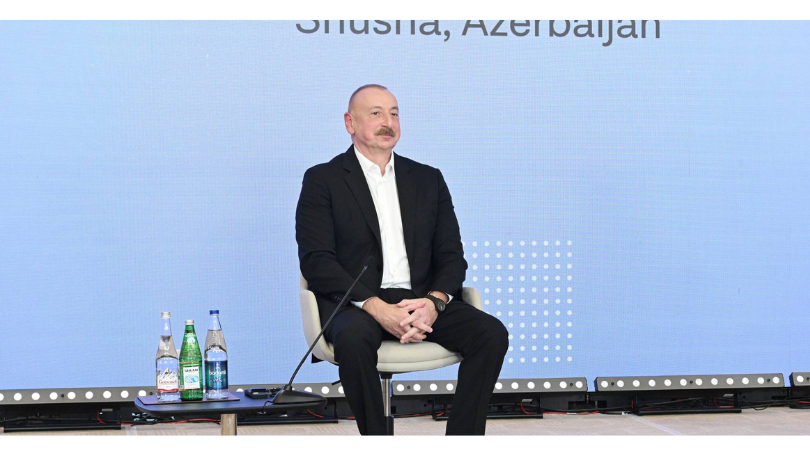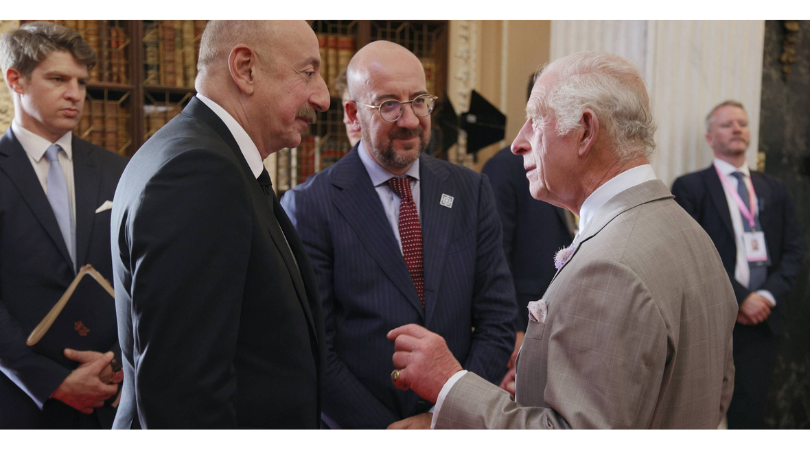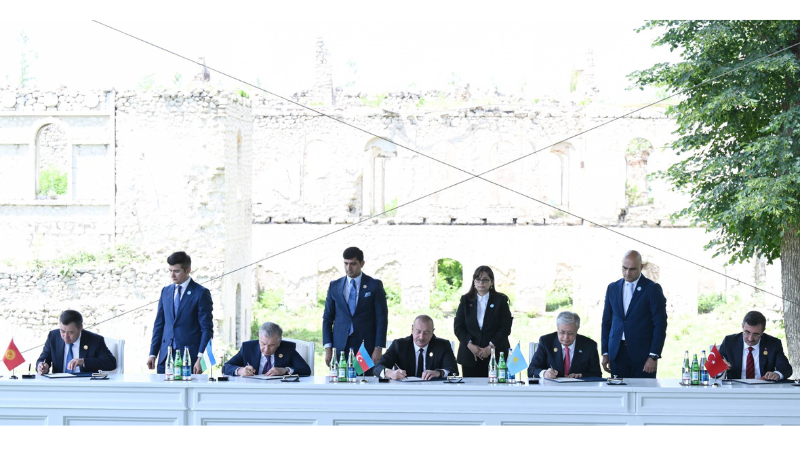The ongoing energy crisis in Europe has changed the traditional energy map of the continent. Most European countries are net importers of fossil fuels, and the continued war in Ukraine war has strongly impacted global energy markets, posing serious challenges for European energy consumers. European countries have already started to look for alternative energy supplies from reliable energy partners. The diversification of energy supplies and routes will contribute positively to the security of energy supplies. To this end, the export of Azerbaijani natural gas to Europe via the inter-regional Southern Gas Corridor (SGC) project has become highly important for Europe’s energy security.
The high market dependence of EU member states on Russian fossil energy threatens European energy security. It is worth noting that European dependence on Russian natural gas differs significantly by country, therefore, since the outbreak of the Russia–Ukraine war, the volatility in the European energy markets has impacted EU member states differently, depending on their energy mix.
In this context, Hungary is one of the EU members that is most dependent on Russian fossil fuel exports. Under a 15-year deal signed in 2021 with Moscow, Hungary receives 4.5 billion cubic meters (bcm) of natural gas per year via Bulgaria and Serbia under a long-term deal. However, Budapest is looking for diversification of its energy supplies to ensure the country’s energy security in the long run.
Meanwhile, Hungary sources most of its electricity from nuclear power plants. In 2021, 46 percent of total electricity generation was derived from this source. Gas and lignite-coal-fired power plants ranked second and third, respectively. That year, 37.4 percent of Hungary’s electricity production was fossil-fuel-based. Moreover, any future phase out of coal-fired power plants should be compensated with other types of energy. Therefore, natural gas security is increasingly linked to electricity security, and energy security is a key priority of the national energy strategy.
Today, Azerbaijan–Hungary bilateral cooperation is broad-based and covers security, trade, energy, transport, education and culture. During the recent official visit of the President of the Republic of Azerbaijan, Ilham Aliyev, to Hungary on January 29, 2023, together with Prime Minister Viktor Orban, he emphasized the strategic importance of cooperation between the two countries. In a tweet, Prime Minister Orban underlined that “Azerbaijan is our secret weapon for diversification in the field of energy.” This shows that Budapest and Baku will further strengthen bilateral relations and cooperation on a multi-sectoral basis.
Regular reciprocal high-level political visits between the two countries have formed the backbone of a long-term framework for Azerbaijan–Hungary engagement. Hungary’s accession, as an observer, to the Turkic Council in 2018 strengthened bilateral relations and opened new opportunities for the two countries. The “Joint Declaration on the Deepening of Strategic Partnership” signed during this visit is a clear example of this. In fact, the first document on strategic partnership, the “Joint Declaration on Strategic Partnership between Azerbaijan and Hungary,” was signed during President Ilham Aliyev’s visit to Hungary in 2014.
Touching upon bilateral engagement on economic and trade issues, the Azerbaijani–Hungarian Intergovernmental Joint Commission on Economic Cooperation plays an important role. Economic cooperation between the two sates aims to bolster economic engagement, especially in the energy sector. It should be mentioned that, earlier, the Hungarian oil firm MOL Group became a new shareholder in Azerbaijan’s Azeri-Chirag-Gunashli (ACG) offshore oilfield, acquiring the shares that previously belonged to American energy giant Chevron. With this energy deal, Hungary made the largest investment in the region.
Azerbaijan has proved itself a reliable energy partner for Europe, and Hungary is therefore interested in deepening energy cooperation with Azerbaijan. During his visit to Azerbaijan in 2020, Péter Szijjártó, Minister of Foreign Affairs and Trade of Hungary, noted that “Hungary could start importing natural gas from Azerbaijan from 2023 on. The annual 1–2 billion cubic metres of gas Hungary would import from Azerbaijan would greatly boost the security of the country’s gas supply.” In view of developments in Hungary, during a recent official visit, Mikayil Jabbarov, Minister of Economy of Azerbaijan, and Minister Péter Szijjártó signed a “Memorandum of Understanding on Natural Gas Cooperation between the Ministry of Economy of the Republic of Azerbaijan and Ministry of Foreign Affairs and Trade of Hungary.”
In recent years, the EU and Azerbaijan have started intensive negotiations on increasing natural gas exports as well as developing green energy cooperation. EU and Azerbaijan signed the “Memorandum of Understanding on a Strategic Partnership in the Field of Energy” on July 18, 2022. In this, the parties agreed to increase the share of Azerbaijani natural gas transmitted to Europe via the Trans Adriatic Pipeline (TAP) as soon as possible and reach at least 20 bcm per year by 2027. Azerbaijan will slightly increase its natural gas exports to Europe this year to reach “at least” 11.6 bcm.
Meanwhile, the parties signed a “MoU on a Strategic Partnership in the Field of Energy” that also opened up new opportunities for the development of green energy and electricity transmission between Europe and Azerbaijan. The tremendous green energy potential of Azerbaijan is the basis for creating a renewable energy platform between Europe and the region. On December 17, 2022, at the Bucharest plenary meeting, Azerbaijan, Georgia, Romania, and Hungary signed an “Agreement on Strategic Partnership on Green Energy” that supports effective long-term green energy cooperation. This agreement envisages the export of electricity from Azerbaijan via an underwater electric cable under the Black Sea from Georgia to southeastern Europe. Azerbaijan will be not only an exporter of fossil fuels, but also of green energy to the EU via Romania and Hungary. This green energy deal is also important for Hungary as a major part of its total electricity generation was derived from fossil fuel. Therefore, electricity imports from Azerbaijan will balance Hungary’s electricity mix by reducing the use of natural gas for electricity production.
Today, Europe’s energy system urgently needs diversification of sources and routes, and it is also noteworthy that both natural gas and electricity exports from Azerbaijan will pass through Hungary. Thus, Budapest will be able to diversify its energy sources and supply routes. In short, the dynamics of mutual cooperation between Baku and Budapest determine that the two countries will boost multilateral cooperation, and Hungary’s joining the SGC will support its energy security. For Azerbaijan, reaching Hungary’s energy market is also important for diversifying its gas exports. In addition, a Hungary-Azerbaijan strategic partnership will have a further positive impact on the latter’s relations with the EU.
Shahmar Hajiyev is Senior Advisor at the Center of Analysis of International Relations




















